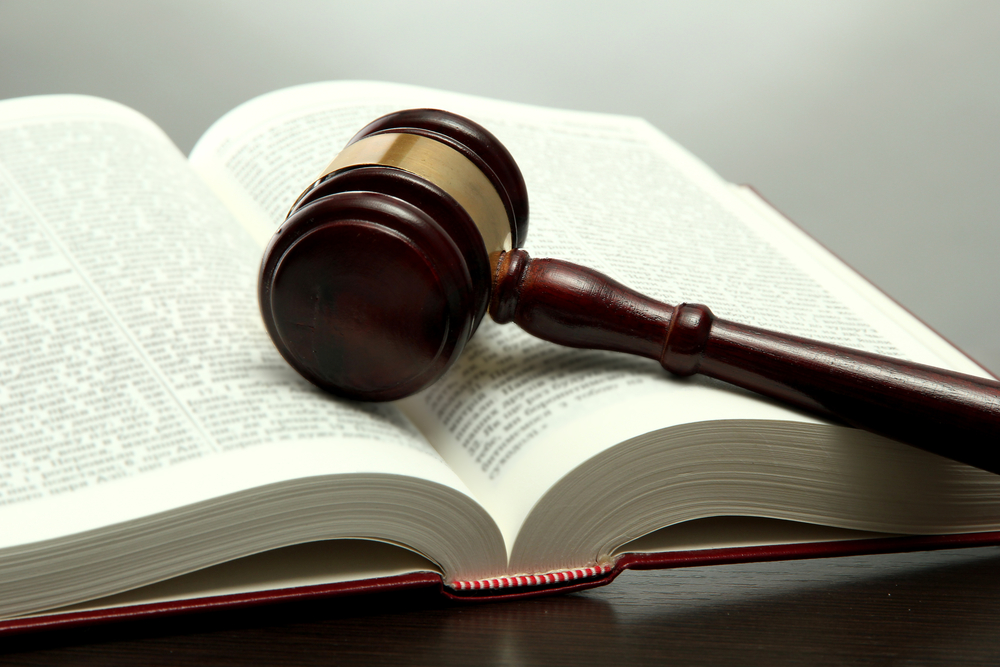The Federal District Court in Philadelphia has sanctioned a lawyer for copying and pasting opposing counsel’s motion in limine and filing it as her own work product the next day. Finding that the motion had been plagiarized, the court granted a motion for sanctions and awarded attorney’s fees incurred by plaintiffs in opposing the motion and in moving for sanctions.
In Stilp v. Borough of West Chester, the plaintiffs filed a civil rights suit after the defendant Borough of West Chester issued a citation threatening fines following their flag burning demonstration on the public courthouse steps. The plaintiffs, both political activists, claimed that the local ordinance prohibiting open burning relied on by the defendant borough violated their First Amendment rights. The district court concluded that the Borough could not extinguish plaintiffs’ constitutional claims on summary judgment. On the eve of the deadline for motions in limine, plaintiffs moved to exclude lay opinion testimony by a code enforcement officer to be offered by the defendant on the grounds that he did not have specialized expert knowledge regarding the safety of the flag burning demonstration. The following day, counsel for the defendant filed a virtually identical motion, seeking to preclude lay opinion testimony of the plaintiffs on the same grounds.
The plaintiffs moved to strike the defendant’s motion in limine and also moved for sanctions. Judge Gene E.K. Pratter observed that the “blatant similarities” between the motions and accompanying briefs were “inescapable.” The court found that nearly every paragraph of defendant’s motion contained language “lifted word-for-word” from the plaintiffs’ motion. “It also appears that, in her rush to submit her brief by the Court’s deadline, [counsel] failed to change the names of the parties in several places, such that the brief as filed decries the failure of the Borough (her client) to produce and serve documents on the Plaintiffs,” also noting that the same typos appeared in both motions.
Based on these similarities and blatant copying, Judge Pratter stated “there can be no serious argument that [counsel’s] filings were not the product of plagiarism.” The court convened an emergency hearing, during which, after “some initial reticence,” counsel for the defendant conceded that her motion and brief were indeed copied.
In its opinion, the court granted sanctions and awarded attorney’s fees based on the court’s inherent authority to do so when a party has engaged in “abusive litigation practices.” Any such sanctions must be carefully tailored to the conduct and harm at issue. Rule 3.3 of the Pennsylvania Rules of Professional Conduct governing candor toward the tribunal prohibits unacknowledged appropriation of another lawyer’s work for use in court. The court further explained that Rule 1.1 concerning competent representation of a client also is implicated when a lawyer commits plagiarism because it does not reflect the thoroughness and preparation clients expect from members of the bar. Moreover, plagiarism did a “disservice” to the defendant here because “counsel presented an unreasoned, error-filled filing and placed both her client’s motion and potential for alternative resolution at risk.”
Concluding that the misconduct of counsel should not adversely impact her client, the court focused its award of sanctions on defense counsel. Exercising its inherent power to “assess attorney’s fees when a party has acted in bad faith, vexatiously, wantonly, or for oppressive reasons,” the court assessed the hours reasonably expended in responding to the filing times an hourly fee based on the prevailing market rate. In calculating attorney’s fees, the court considered the amount of time the plaintiffs’ counsel spent on their original motion and their hourly rates. The defendant did not dispute the appropriateness of the hourly rates, but did contend the number of hours were excessive relative to the straightforward nature of the motion. Based on these considerations, the district court found that the number of hours devoted by the plaintiffs’ counsel was greater than reasonably necessary, and awarded plaintiffs $8,483.55 in fees and costs.
While not relied upon by the district court as a basis for sanctions, we note that sanctions or potential lawyer discipline may also be triggered by a violation of Model Rule of Professional Conduct 8.4(c), for “conduct involving dishonest, fraud, deceit or misrepresentation.” While all lawyers face deadlines, and tend to borrow and modify language from form books, sample motions and briefs and other sources, they run the risk of sanctions and other adverse consequences when they appropriate the work of another author and pass if off as their own by failing to provide proper attribution.
The ruling brings to mind pop musician Ed Sheeran’s recent victory after being accused of plagiarism in Manhattan federal court based on a claim that he copied elements of Marvin Gaye’s ‘70s hit “Let’s Get It On” for his own “Thinking Out Loud.” The copyright trial resulted in a jury verdict in Sheeran’s favor after a nearly two week trial. The defense argued that certain chords found in both songs are common “building blocks” used daily by songwriters. In a similar vein, it is common for lawyers and law firms to create “brief banks” and to pay for online legal research resources designed to make it easier to structure common pleadings, to draw on string citations for certain legal standards and propositions, and to thereby save time and the client expense of online research to recreate essentially the same work product.
What conduct may violate policies prohibiting plagiarism in the academic setting differs from the lawyer misconduct that especially concerns courts – copying in lieu of customizing a brief to the specific issues and circumstances of the case. Blatant copying of the work product of other counsel without giving proper attribution or citation raises a serious risk of sanctions and the potential for lawyer discipline, as well as adverse employment consequences. Moreover, sample libraries tend to have a limited shelf life, and of course the decisional law will vary from jurisdiction to jurisdiction. It is the lawyer’s responsibility to validate and update legal authority and to disclose authority in the controlling jurisdiction known to the lawyer to be directly adverse to the client’s position and not disclosed by opposing counsel.
Large scale copying also may present copyright infringement or misappropriation issues where the use is made without consent. Court filings in federal court and many state courts carry the obligation to ensure that the “claims, defenses, and other legal contentions are warranted by existing law or by a nonfrivolous argument for the extending, modifying, or reversing existing law or for establishing new law.”
Guidelines to reduce the likelihood of a plagiarism finding include providing attribution for language taken from other citable sources, and ensuring that any copied material is in fact relevant and applies to the case or dispute at issue. Work product should be tailored to the situation and legal research should include current and relevant supporting authority.
Last modified: May 16, 2023







No comments yet.